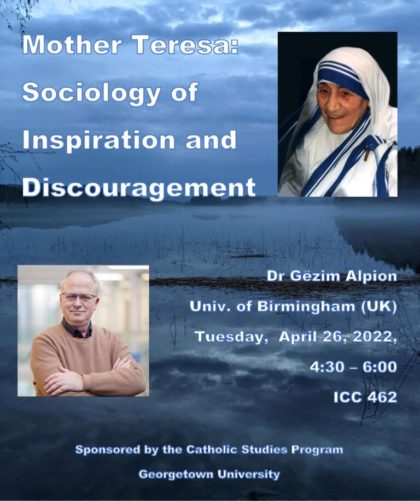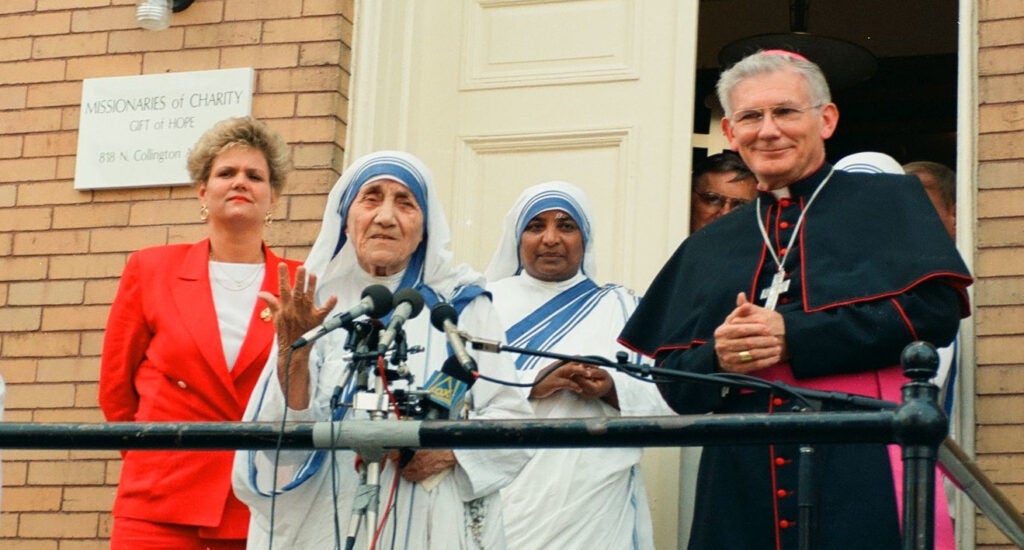2022 April 26, 4:30 p.m.: Mother Teresa: A Sociological Approach to Spiritual Inspiration and Discouragement. Location: ICC462

Following the publication of Mother Teresa’s private writings in the 2000s, her supporters have interpreted her ‘dark night of the soul’ as additional ‘proof’ of her ‘sainted’ status while her detractors have employed it to further tarnish her image and legacy. The nun’s spiritual crisis is the object of scholarly scrutiny across many disciplines. The sociologist Dr Gëzim Alpion (University of Birmingham) proposes that the poor, with whom she worked, and her religious community were ‘helpers’ in her lifelong quest to find an elusive God and solve the problem of spiritual darkness. Dr. Alpion’s sociological perspective investigates Mother Teresa’s spiritual void as an incurable condition that is better understood in the context of an array of interrelated personal, familial, ethno-spiritual and cultural milieus.
Dr Gëzim Alpion has a BA from Cairo University and a PhD from Durham University, UK, He lectured at the Universities of Huddersfield, Sheffield Hallam and Newman before joining the Department of Sociology at the University of Birmingham, UK, in 2002. His specializations encompass the sociology of religion, nationalism, fame, race, media, film and authorship.

Dr Alpion has recently published Mother Teresa: The Saint and Her Nation (new window) (Bloomsbury, 2020): Focusing on her traumas, ordeals and achievements as a private individual and a public missionary, and her complex spirituality, this book contends that Mother Teresa’s life and her nation’s history, especially her countrymen’s relationship with Roman Catholicism, are interconnected. Unravelling this interconnectedness is essential to understanding how this modern spiritual and humanitarian icon has come to epitomize her ancient nation’s cultural and spiritual DNA.